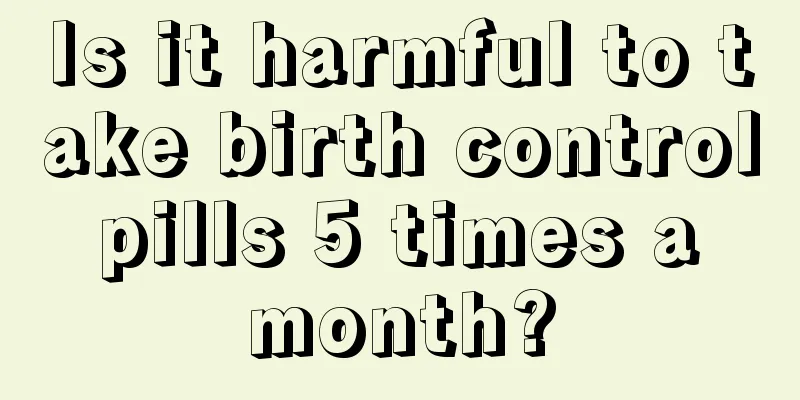What are the dangers of uterine fibroids?

|
Among the many gynecological diseases in women, uterine fibroids is a relatively serious one. This disease is very harmful. For example, it can cause female infertility, miscarriage after pregnancy, severe abdominal pain, etc. In severe cases, the uterus needs to be removed. 1. Infertility or miscarriage: The fibroid tissue in the uterine cornu compresses the entrance of the fallopian tube, causing the uterus to deform and thus hindering the implantation of the fertilized egg, ultimately leading to infertility. In addition, statistics show that the spontaneous abortion rate of patients with fibroids is higher than that of ordinary people, with a ratio of 4:1. 2. Free myoma: Subserosal uterine myoma may twist at the pedicle, causing acute abdominal pain. In severe cases, if surgical treatment is not performed immediately, free myoma may be formed due to the twisting of the tumor pedicle. 3. Secondary anemia: Uterine fibroids can cause excessive menstrual bleeding. Over time, it can cause secondary anemia and even trigger anemic heart disease. In severe cases, patients may experience adverse symptoms such as general fatigue, pale complexion, palpitations and shortness of breath. 4. Malignant lesions: Uterine fibroids are benign tumors, but a few of them may cause malignant transformation. They are more common in older people with large and fast-growing fibroids. Patients with rapidly growing fibroids after menopause or those with recurrent fibroids after menopause should be more vigilant. 5. Infection and suppuration: Uterine fibroids can cause pelvic congestion and infection. The infection is mostly caused by tumor pedicle torsion, while hematogenous infection is extremely rare. After infection, a few patients develop abscesses in the tumor tissue, while the rest present with purulent presentation. 6. Concurrent inflammation: Bleeding may lead to invasion of pathogenic bacteria, causing gynecological inflammation such as adnexitis and pelvic inflammatory disease. Complications of fibroids are often caused by tumor pedicle torsion or acute endometritis. The inflammation may sometimes be purulent, and in a few cases, abscesses may form in the tissues. After the pedicle of a subserosal myoma is twisted, intestinal adhesion occurs, which may be invaded by intestinal bacteria. The inflamed myoma adheres to the uterine appendages, causing purulent inflammation. |
<<: Will I have a boy if I get pregnant during ovulation? Is the probability high?
>>: Can I do fallopian tube hydrotubation during ovulation?
Recommend
How to clean private parts after childbirth?
Women will experience vaginal bleeding after givi...
Symptoms of successful intercourse during ovulation
There is a process from female ovulation to conce...
What should I do if my leucorrhea contains blood?
As for leucorrhea, it is just like what the song ...
What's the best thing to eat right after an abortion?
Nowadays, many women who have unexpected pregnanc...
What is the situation of women's tide
I believe many people have heard of this word. Ho...
How to achieve a perfect first night for women
A woman’s first sexual intercourse is crucial, re...
When milk tea meets health: Can you have both milk tea and health?
Milk tea has long become one of the indispensable...
Will eating bananas stop bleeding during menstruation?
Some women have heavy menstrual flow due to some ...
How long will the cold last after abortion?
It is common to feel cold after an abortion. Don&...
What kind of car wax should be used on a new car? Is it good to wax a new car? Will it damage the paint?
Car wax is one of the products for car beauty. It...
Is aloe vera suitable for indoor cultivation? How to grow lucky bamboo indoors?
Many people like to grow flowers, and some even h...
Are there any taboos for eating watermelon? Who should not eat watermelon?
Watermelon is a common fruit in our daily life. I...
What to do if you have acid reflux during pregnancy
Acid reflux during pregnancy refers to the reflux...
What foods are good for uterus maintenance?
While improving the quality of life, we must ensu...
What are the side effects of taking birth control pills?
Nowadays, there are more and more unmarried peopl...









